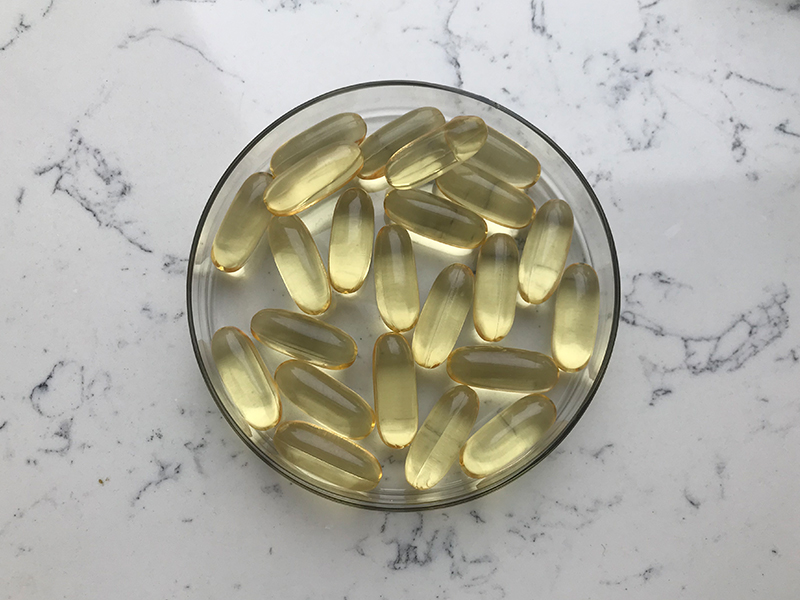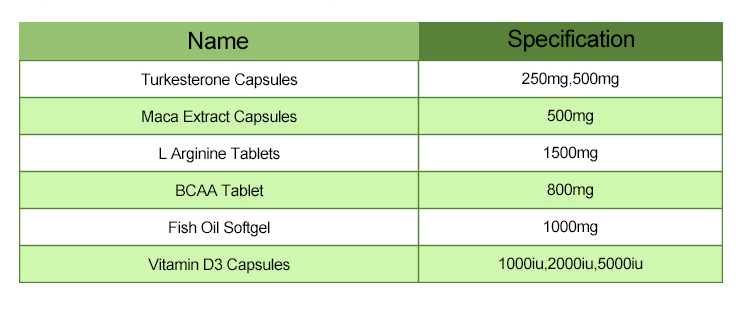Fish oil capsules are a dietary supplement that contain omega-3 fatty acids, which are essential nutrients for human health. Omega-3 fatty acids are a type of polyunsaturated fat that are considered essential because the body cannot produce them on its own, so they must be obtained through diet or supplementation.
The primary omega-3 fatty acids found in fish oil capsules are eicosapentaenoic acid (EPA) and docosahexaenoic acid (DHA). These fatty acids are abundant in certain types of fish, particularly fatty fish like salmon, mackerel, and sardines.
Fish oil capsules are commonly taken as a convenient way to increase omega-3 fatty acid intake, especially for those who don’t consume enough fish in their diet. They are available over the counter in most pharmacies and health food stores and come in various dosages and formulations.
Some potential benefits of taking fish oil capsules include:
Heart health: Omega-3 fatty acids may help reduce triglycerides, lower blood pressure, decrease the risk of blood clot formation, and improve overall heart health.

Brain health: DHA, in particular, is important for brain development and function. Omega-3 fatty acids may also help reduce the risk of cognitive decline and improve mood.
Joint health: Omega-3 fatty acids have anti-inflammatory properties that may help reduce joint pain and stiffness in conditions like rheumatoid arthritis.
Eye health: DHA is a major component of the retina, and adequate intake of omega-3 fatty acids may help reduce the risk of age-related macular degeneration and other eye disorders.
It’s important to note that while fish oil capsules can be beneficial for many people, they are not a cure-all, and individual responses to supplementation may vary. As with any supplement, it’s best to consult with a healthcare professional before starting fish oil capsules, especially if you have any underlying health conditions or are taking medications.
How to use Fish Oil Capsules?
Fish oil capsules are commonly used as a dietary supplement due to their high omega-3 fatty acid content, which offers various health benefits. Here’s how you can use fish oil capsules effectively:
Read the Label: Before using any supplement, carefully read the label and follow the manufacturer’s instructions regarding dosage and usage.
Choose High-Quality Supplements: Select fish oil capsules from reputable brands that undergo third-party testing to ensure purity and potency. Look for supplements that contain high levels of EPA (eicosapentaenoic acid) and DHA (docosahexaenoic acid), the two primary omega-3 fatty acids found in fish oil.
Dosage: The appropriate dosage of fish oil capsules can vary depending on factors such as age, health status, and dietary intake. It’s advisable to consult with a healthcare professional to determine the correct dosage for your specific needs.
Take with Food: Fish oil capsules are typically best absorbed when taken with a meal that contains some fat. Consuming them with food can help enhance absorption and reduce the risk of gastrointestinal discomfort.
Swallow Whole or Pierce: Fish oil capsules are usually meant to be swallowed whole. However, some people may find it difficult to swallow large capsules. In such cases, you can pierce the capsule with a pin or small knife and squeeze the oil into food or a beverage.
Consistency: For optimal results, take fish oil capsules consistently as directed. It may take several weeks to notice any noticeable effects on health.

Storage: Store fish oil capsules in a cool, dry place away from direct sunlight to prevent oxidation and maintain freshness. Some products may require refrigeration to prolong shelf life.
Monitor for Side Effects: While fish oil is generally safe for most people when taken as directed, some individuals may experience side effects such as fishy burps, gastrointestinal upset, or allergic reactions. If you experience any adverse effects, discontinue use and consult with a healthcare professional.
Consider Omega-3 Sources: While fish oil capsules are a convenient way to increase omega-3 intake, consider incorporating whole food sources of omega-3 fatty acids into your diet as well. Fatty fish like salmon, mackerel, and sardines are excellent natural sources of EPA and DHA.
Always remember that while fish oil supplements can be beneficial for many people, they are not a substitute for a healthy diet and lifestyle. It’s essential to maintain a balanced diet rich in fruits, vegetables, whole grains, and lean proteins to support overall health and well-being.
